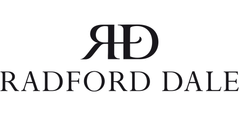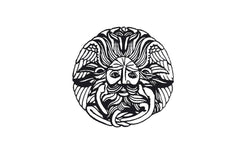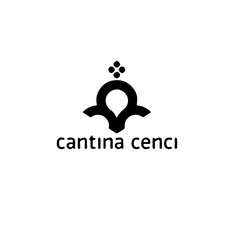304 products


- White Wine
- Sauvignon Blanc
- Sustainable
- Dry
- Residual Sugar: 6.00 g/l
- Medium Bodied
- 750ml
- 13.00% alc./vol
About the Winery
Invivo

Invivo's journey began when two Kiwi friends, Rob and Tim, met in a London bar, determined to revolutionize the wine industry by creating a strong brand that defies tradition. Since 2008, Invivo has become a leading producer in New Zealand, winning over 600 medals and expanding operations across several countries. Through customer focus and innovation, including being one of the Southern Hemisphere's largest crowdfunded companies, Invivo has rapidly grown. Rejecting traditional winemaking norms, Invivo brings elegance from the old world to their original range, featuring Sauvignon Blanc, Pinot Gris, Chardonnay, Pinot Noir, and Rosé. Their collaborations with Graham Norton and Sarah Jessica Parker have further elevated their profile, embodying Invivo's vision of bringing people together to create greatness.
Press Reviews
Wine Orbit
94 Points - Sam Kim
It's gorgeously aromatic on the nose, showing kiwifruit, fig, crunchy apple and lime zest characters, followed by a juicy palate that's punchy and tasty. Brilliantly expressed with loads of youthful fruit flavours, making it highly appealing. At its best: now to 2027.
- White Wine
- Chenin Blanc
- Sustainable, Vegan-Friendly
- Dry
- Residual Sugar: 2.00 g/l
- Medium Bodied
- 750ml
- 12.50% alc./vol
About the Winery
Radford Dale
 Radford Dale and The Winery of Good Hope are two brands made by the same people, in the same winery. The team behind these wineries has been an industry leader since the 1990s in chemical free farming, and more recently in low and no sulfur winemaking. They are a founding member of PIWOSA (Premium Independent Wineries of South Africa) which sets ethical, environmental and social uplift standards. Recognizing the social inequality present in South Africa Radford Dale has also set up a trust called Land of Hope to help facilitate bright futures for children, focusing heavily on education.
Radford Dale and The Winery of Good Hope are two brands made by the same people, in the same winery. The team behind these wineries has been an industry leader since the 1990s in chemical free farming, and more recently in low and no sulfur winemaking. They are a founding member of PIWOSA (Premium Independent Wineries of South Africa) which sets ethical, environmental and social uplift standards. Recognizing the social inequality present in South Africa Radford Dale has also set up a trust called Land of Hope to help facilitate bright futures for children, focusing heavily on education.
Alex Dale who owns and manages both projects is an Englishman who grew up spending summers in Burgundy, France. He moved there in his late teens to follow a passion for winemaking and also opened a wine bar in Beaune. He lived in Burgundy for many years before moving to South Africa in 1998, starting Radford Dale with Ben Radford, an Australian. The idea was to produce wines using modern techniques and technology with a healthy respect for tradition, something Alex came to understand well while living in Burgundy.
Wines are made with minimal intervention in order to best express each vineyard’s individuality.Press Reviews
Winemag.co.za
94 Points - Christian Eedes
Grapes from the same Lynedoch vineyard planted in 1969 that supplies Radford Dale's top-end Renaissance bottling. 40% matured in foudre, the rest in a combination of 228-, 300- and 500-litre barrels. Citrus, peach and just the right amount of leesy, waxy complexity on the nose. Great fruit concentration, punchy acidity and pithy, slightly bitter finish. Old-vine Chenin treated with the lightest of hands to great effect
- White Wine
- Chardonnay
- Sustainable
- Dry
- Medium Bodied
- 750ml
- 12.5% alc./vol
About the Winery
Groupe Bellene

Led by Nicolas Potel in Beaune, Groupe Bellene is composed of the négociant arm Maison Roche de Bellene, the winery arm Domaine de Bellene, and a special back-vintage series under the Collection Bellenum label.
- Maison Roche de Bellene offers a complete range of wines, with an emphasis on individual terroirs from old vines of more than 40 years. All of the growers that Nicolas works with are either organic certified or sustainably farmed.
- Domaine de Bellene represents the wines that are produced and bottled from Nicolas Potel's private vineyard holdings.
- Collection Bellenum is a back vintage series that Nicolas Potel sourced from his friends in the region, offering a magnificent selection of bottled history. The wines have moved only twice in their lives, from the original cellar to Potel's and now to yours!
Nicolas Potel grew up at Volnay's Domaine Pousse d'Or, where his father worked. He trained abroad and returned home in 1996 to build a négociant business and started Maison Nicolas Potel, where he sourced grapes from good parcels, often working with the growers to improve the quality. By 2002, he was making 120 wines from 50 different appellations, and the rest is history!
- White Wine
- Chardonnay
- Sustainable, Vegan-Friendly
- Dry
- Medium Bodied
- 750ml
About the Winery
Domaine Baud Père et Fils

The history of Domaine Baud dates back to 1742, and it wasn't until 1950 when René Baud, the 7th generation, rebuilt the vineyard which had suffered from the phylloxera crisis and two World Wars.
Starting with only 4 hectares, the vineyard progressively expanded to 20 hectares with the help of successive generations. Now, managed by siblings Clémentine and Bastien, the 9th generation, the estate continues to flourish and grow, with a strong commitment to sustainable viticulture and preserving the traditions and style that makes the wines of the Jura so unique and incredible.
The estate achieved the Terra Vitis certification in 2014 for its eco-friendly work and environmental preservation.
- White Wine
- Grechetto
- Organic
- Dry
- 750ml
About the Winery
Cantina Cenci

The Cenci Family has been dedicated to viticulture for over four generations, continuing to cultivate the vine with deep respect for the traditions and unique characteristics of the land once owned by the Olivetan monks. In the early 1950s, Mario—an enlightened and forward-thinking agricultural expert, and grandfather of Giovanni—selected clones of Grechetto, Sangiovese, and Malvasia from vines once cultivated by the Olivetan monks and traditionally grown intertwined with mulberry trees. He planted the first vineyards of the estate, and the wines made from those grapes were of such outstanding quality that he secured a long-term contract to supply Grechetto and Sangiovese in traditional flasks to the restaurant of a prestigious hotel in Perugia.
In 2012, following two years of renovation of the farmhouse, the new winery was inaugurated under the guidance of Mario Cenci, architect and brother of Giovanni. Thanks to cutting-edge equipment and winemaking techniques—combined with deep respect for tradition and the passionate leadership of Giovanni Cenci (viticulturist, enologist, food biotechnologist, and sommelier)—Cantina Cenci today produces wines appreciated by a niche audience of expert consumers.
The perfect balance between tradition and innovation has shaped a strong and distinctive brand identity.
- Red Wine, White Wine
- Chardonnay, Primitivo
- Sustainable
- Dry
- 750ml
- White Wine
- Sauvignon Blanc
- Sustainable
- Dry
- Residual Sugar: 4.00 g/l
- Medium Bodied
- 750ml
- 13.00% alc./vol
About the Winery
Blank Canvas

Blank Canvas is the personal wine range of husband and wife team, Matt Thomson and Sophie Parker-Thomson.
Having completed over fifty back-to-back vintages in both New Zealand and Europe as an award-winning winemaking consultant, Matt together with Sophie felt it was time to create and build a wine brand together, with their first vintage in 2013. Blank Canvas embodies their own expression of art-meets-science with single-vineyard, small batch wines that push the sensory boundaries and challenge winemaking orthodoxy.
Winemaker Matt Thomson’s science background defines the parameters of his winemaking canvas, allowing creativity to flow within those bounds. Together with business partner, Master of Wine student and wife Sophie Parker-Thomson, Matt is striving to achieve the unique winemaking fusion between art and science, pushing the boundaries to capture a unique expression.
Sophie recently obtained her Master of Wine title, joining 149 women MWs globally with the total number of MWs in the world now 418 in 32 countries.
Press Reviews
The Real Review
95 Points - Bob Campbell
Intense, vibrant sauvignon with lemongrass, red capsicum and passionfruit flavours supported by a mouthwatering cut of tangy acidity. High energy wine with a perfect sweet-sour balance giving the wine pleasing tension.



























